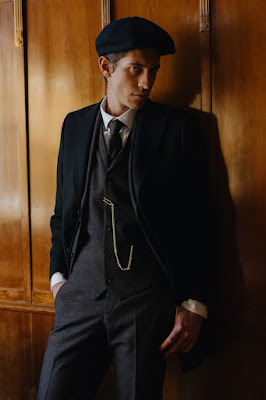America is a nation known, in part, for the ingenuity of its people.
While the same might be said of individuals around the world—after all,
we’re all made in the image of our Great Creator—Americans seem to have a
special penchant for finding ways to accomplish goals even when the path seems blocked. That's been particularly true if the way is forcibly blocked by government. We've been pesky rebels for a long time. Ha!
The roaring twenties is indicative of that mentality. When we think of that era, we imagine jazz music, loosening dance and dress styles, and most poignantly, the illegal alcohol trade. It’s almost hard to separate the twenties from images of speakeasies and gangsters.
 |
| Photo by cottonbro studio, Pexels.com |
(Case in point,
with my book Polly coming out next January, it was difficult to find a cover image of
a model who wasn’t a flapper.) Nope... Not Polly.
 |
| Nope, that's not Polly. (photo by Victoria Rain - pexels.com) |
At any rate, let’s take a look at how we got to those roaring years.
Temperance organizations existed in nearly every state earlier in the century. By January 1916, when a constitutional amendment of Prohibition was actually passed federally, alcohol had already been banned by statute in over half the states in the country. The 18th Amendment merely established Prohibition across the entire land.
HOWEVER, even though the law was made, it lacked some teeth. It took the Volsted Act, passed the following October, to actually clarified the law by stating that "beer, wine, or other intoxicating malt or vinous liquors" meant any beverage that was more than 0.5% alcohol by volume. In fact, the Act also stated that even owning an item designed to manufacture alcohol was illegal, and it set specific fines and jail sentences for violating Prohibition. That's why those secreted stills out in the woods were illegal to have, even if they were empty or idle.
This makes it easy to see why there were people who saw a lot of money to be made by "rum-running" or "bootlegging". Lucrative but dangerous work.
I always like to look at history as it regards our current times and situations. Can you think of laws that Congress is trying to pass (national or state level) that could have such sweeping ramifications as to prevent even owning a piece of equipment that could be used to make something considered "illegal"?
Back to prohibition...
 |
| Prescription for Medicinal Supply of Spirits By US Treasury Department - ha.com, Public Domain, https://commons.wikimedia.org/w/index.php?curid=63943871 |



Wow! A prescription for booze. Fast-forward a prescription for marijuana. I see a pattern. Although CBD is the medicinal part of the marijuana plant. But still the course to legalizing things hasn't changed. Fascinating post. The video was so fun.
ReplyDeleteI hadn't even thought of that comparison, Cindy, but it's a good one!
DeleteThank you for posting today. You made lots of points to think about. Loopholes in laws just lead to more laws, which isn't necessarily a good thing.
ReplyDeleteExactly! Seems like one law tends to always beget another. Thanks, Connie!
DeleteThanks for posting today. This is a very informative post. Learned a lot. And yes a lot of women at them time were not flappers.
ReplyDeleteThanks, Lori! Yes, and we tend to forget how most people were just everyday people, farmers' wives, business people, and so on. Thanks for commenting!
Delete